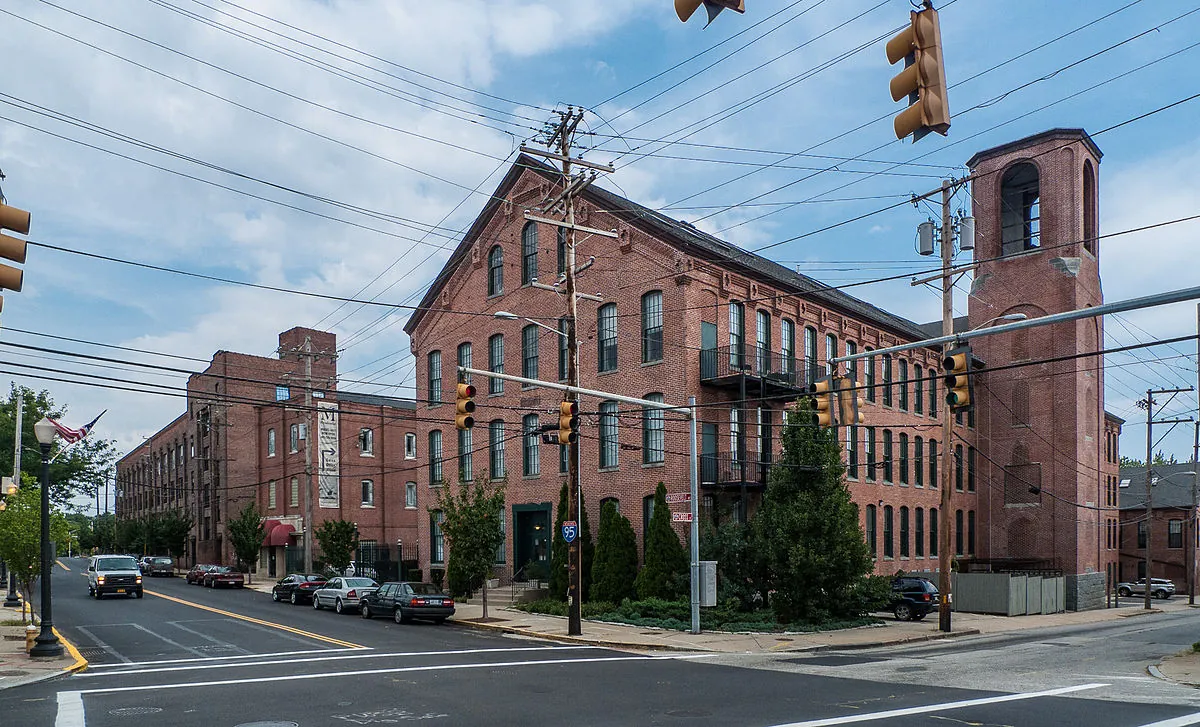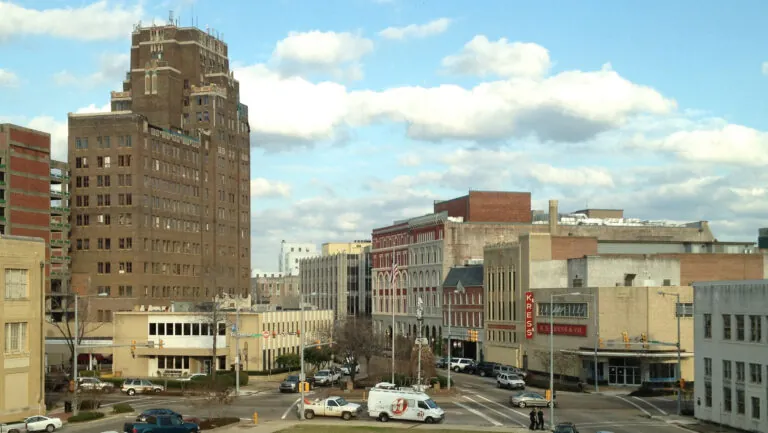This Town Has Been Named the Poorest in Rhode Island
Central Falls, Rhode Island has been named the poorest town in the state, with a poverty rate of 24.9% as of 2023.
This is significantly higher than the state poverty rate of 11.3%. The median household income in Central Falls is also much lower than the state median, at just $40,235 per year.
Delving into the causes of this economic disparity, we uncover a complex web of issues contributing to the struggles of Central Falls’ residents.
Economic Hardship in Central Falls
High Unemployment Rate
One glaring issue that perpetuates poverty in Central Falls is its exceptionally high unemployment rate. As of 2023, the town’s unemployment rate stands at 9.5%, a stark contrast to Rhode Island’s overall rate of 4.3%. This disparity in employment opportunities means that many of Central Falls’ residents find it increasingly difficult to make ends meet. High unemployment not only limits income prospects but also fosters an environment of economic instability.
Lack of Affordable Housing
Central Falls also grapples with the challenge of rising housing costs. The cost of living in this city has seen a sharp increase in recent years, making it particularly difficult for individuals with lower incomes to secure affordable housing. The median rent in Central Falls has soared to $1,800 per month, significantly surpassing the state median rent of $1,400 per month. This increase puts a strain on the financial resources of the town’s residents and can contribute to their ongoing financial struggles.
High Concentration of Immigrants and Refugees
The city’s rich cultural diversity also brings unique challenges to the forefront of its poverty issues. Central Falls boasts a significant immigrant and refugee population. Many of these individuals have fled violence and poverty in their home countries, often arriving in the United States with limited resources. They may face language barriers and difficulties finding employment, both of which make escaping poverty particularly challenging. Addressing the unique needs of this population is a key aspect of combating poverty in Central Falls.
Low Educational Attainment
Another critical factor contributing to poverty in Central Falls is its low educational attainment. The educational landscape in this town is less promising than the state average, with only 78% of adults having a high school diploma, compared to 89% of adults statewide. A lack of education presents a significant barrier to finding stable, well-paying employment, which is often the first step in breaking the cycle of poverty. Improving educational opportunities is essential to providing residents with better economic prospects.
Single-Parent Households
Central Falls also experiences a higher-than-average rate of single-parent households, a demographic group that is statistically more likely to live in poverty. This situation places added pressure on single parents who must provide for their families on a single income. Recognizing the unique challenges faced by these households is crucial to addressing the overall poverty rate in Central Falls.
The Way Forward
In addition to these factors, Central Falls is further burdened by its small size and limited tax base, which hinders its ability to provide essential services such as affordable housing, job training, and education programs. The city, however, is not sitting idly by in the face of these challenges. Various initiatives have been implemented to tackle poverty head-on.
The Central Falls Promise
One notable initiative is the “Central Falls Promise.” This program provides free college tuition to all Central Falls high school graduates. By removing the financial barrier to higher education, this initiative aims to empower the town’s youth with the tools they need to secure better-paying jobs and break the cycle of poverty. It’s a step in the right direction, emphasizing the value of education as a way out of economic hardship.
Investment in Job Creation
To address the high unemployment rate, the city needs to invest in job creation. Encouraging businesses to establish themselves in Central Falls and providing job training programs can help connect residents with stable employment opportunities. By increasing the availability of jobs, the city can mitigate the effects of high unemployment.
Affordable Housing Initiatives
Given the soaring housing costs, Central Falls should also implement affordable housing initiatives. Subsidized housing options, rent control measures, and partnerships with housing organizations can make a significant difference in providing affordable living spaces for residents. These measures will help ensure that the local workforce has access to housing they can afford.
Education and Community Support
Education remains a fundamental pillar in the fight against poverty. Increasing access to quality education, including vocational and adult education programs, can boost the economic prospects of Central Falls residents. Community support programs, such as after-school programs, mentorship, and tutoring, can assist students in overcoming educational challenges and achieving their full potential.
Addressing Social Determinants of Health
Finally, addressing the social determinants of health is crucial. Access to healthcare, food security, and safe housing are vital components of overall well-being. Ensuring that residents have access to these resources can improve their quality of life and reduce the burden of healthcare costs.
In Conclusion
Central Falls, Rhode Island, confronts the daunting challenge of being the poorest town in the state. High unemployment, a lack of affordable housing, a significant immigrant and refugee population, low educational attainment, and a prevalence of single-parent households all contribute to the city’s poverty rate. While initiatives like the Central Falls Promise show promise, the town must continue to invest in job creation, affordable housing, education, and community support to address the root causes of poverty comprehensively. By addressing these issues and enhancing social determinants of health, Central Falls can strive to uplift its residents and work toward a more prosperous future.
Read More:







